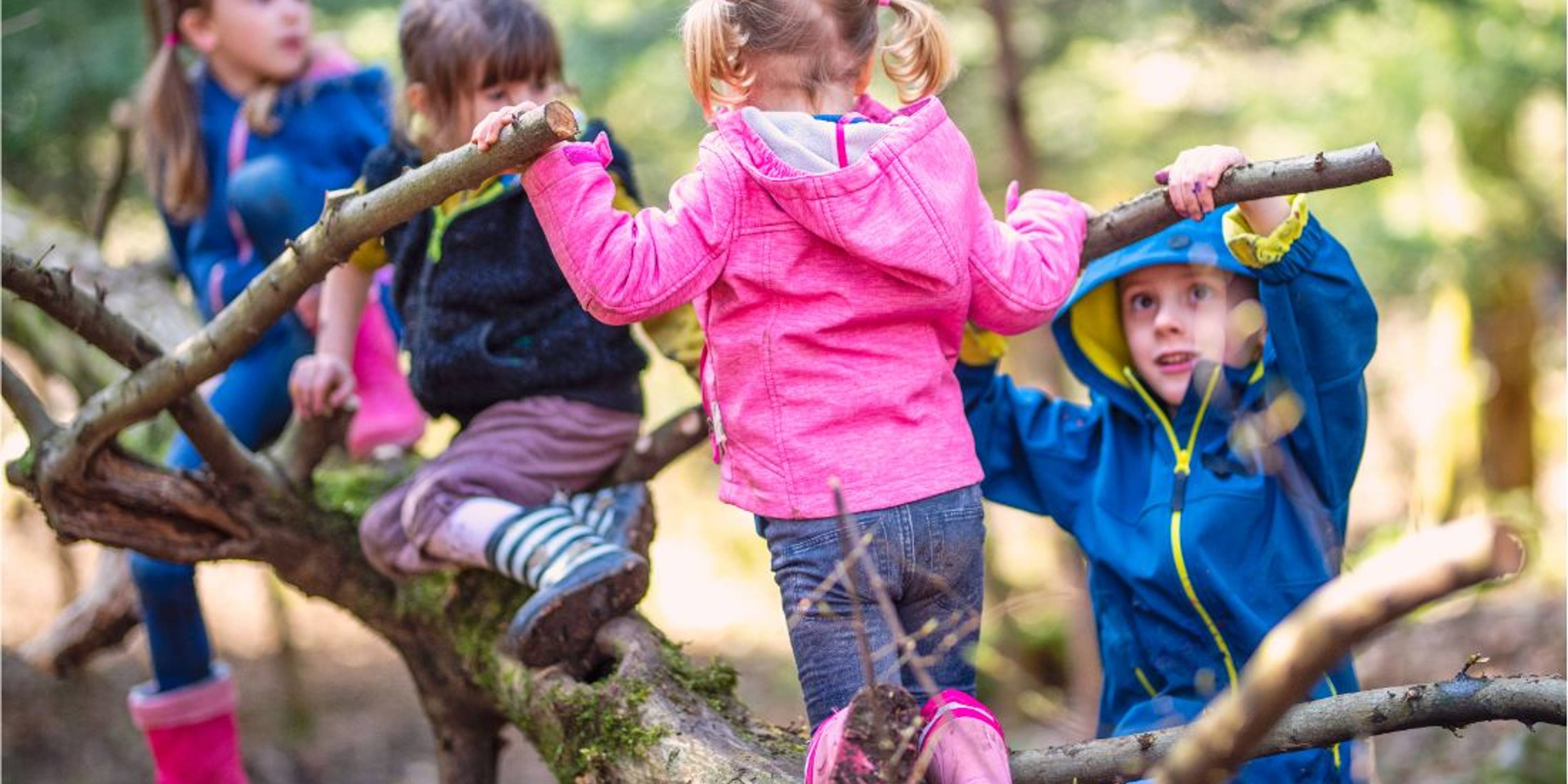September 14, 2022
Do sustained attention training interventions actually work?

This month, we are highlighting a recent paper by Dr Éadaoin Slattery and co-authors, which systematically reviews the evidence behind three popular sustained attention training approaches widely used in schools with children and teens between the ages of three and 18.
Attention is a cognitive process that is fundamental to learning and functioning and is vital for our performance on monotonous tasks. Sustained attention refers to the ability to continuously maintain focus on goal-directed activity over time, particularly in conditions of monotony and repetition. In everyday life, we’d commonly refer to ‘sustained attention’ as concentration or focus. Sustained attention skills develop throughout childhood, with a period of accelerated development occurring between the ages of around six to nine years.
Correlational research shows that sustained attention is related to children’s academic achievement in key domains such as maths. We also know that children with sustained attention difficulties, such as those with ADHD, are at increased risk of lower grades, dropping out of school early and having to repeat a school year. Students with attentional difficulties can also be at higher risk of experiencing social and emotional issues, including teasing from peers, and lower self-esteem.
Because of its importance, many schools implement sustained attention training interventions. Dr Slattery evaluates the existing evidence base for three common intervention approaches – cognitive attention training (commonly known as brain training), physical activity, and meditation training. She seeks to establish whether any of these interventions actually improve performance on both sustained attention tasks and other cognitive tasks, as well as their impact on behavioural measures (such as ADHD symptoms).
Summary
In the last few years, studies of interventions promoting activities designed to enhance sustained attention and other cognitive functions in children have rapidly increased. Two broad approaches for improving attention have been identified: cognitive attention training (brain training) and state training.
Cognitive attention training involves the repetitive practice of cognitive tasks which require sustained effort. It is thought that the repeated engagement in such tasks exercises neural networks related to attention. There are various programmes aimed at children, including some commercial products such as Tali Train and BrainTrain. Typically, training requires children to practise videogame-like attention tasks (among other tasks) delivered via computers or tablets, with different performance levels and reward systems to encourage motivation.
In contrast, meditation (in this case, mindfulness) and physical activity are types of ‘state training’. These are designed to develop a brain state that is thought to positively influence attention, getting young people into the right frame of mind to focus on a task.
Contrary to what we might see in the media, the systematic review showed that, in general, cognitive attention training does not reliably improve performance. Physical activity and meditation interventions demonstrated greater potential in enhancing sustained attention, but results were not conclusive.
Dr Slattery found that mindfulness training had consistent positive effects on a type of attention called ‘selective attention’. This is our ability to select one piece of information (such as the sound of a teacher’s voice) from our environment, whilst ignoring other things that are going on. It is likely that mindfulness targets many of the interacting features that determine our ability to pay attention, including our cognitive attention system, our levels of physiological arousal (which need to be neither too high nor too low for optimal concentration) and our emotional state. Physical activity also likely targets sustained attention via physiological arousal factors and cognitive control.
It’s important to note that none of the reviewed physical activity or mindfulness studies included a follow-up testing occasion. As a result, it is unclear whether the interventions produce long-lasting effects. The potential benefits of physical activity and meditation interventions need to be investigated in further, more rigorous, research.
Implications
“We found limited evidence that it is possible to train children’s ability to sustain attention”.
Implications for schools
Given the current evidence, any programme which claims to benefit sustained attention should be treated with caution and educators should be aware that claims of efficacy may not be evidence-based. The findings of this review indicate that school staff should not assume that these three intervention types will reliably improve children’s sustained attention, and in particular, should be wary of cognitive attention training programmes. More research is also required to assess potential benefits of mindfulness and physical activity.
Dr Slattery stresses the importance of being research informed. When evaluating the claims of any intervention, try to establish if there was a control group in the study and check the sample size – generally, the larger, the better. Schools should carefully monitor and evaluate the impact of any intervention they choose to use.
Implications for parents
Remember that all children are different and paying attention to what works for your child is important. More research also needs to be carried out to find out what can improve sustained attention at home. However, there is some evidence that ‘self-alert’ training can have a positive impact on boosting attention in the moment. Listen to our interview with Dr Slattery to find out more!

Dr Éadaoin Slattery
Postdoctoral Researcher in the Centre for Assessment Research
Dr Éadaoin Slattery currently works as a post-doctoral researcher in the Centre for Assessment Research, Policy and Practice in Education at Dublin City University. Her post-doctoral research focuses on game-based learning and assessment. She is broadly interested in the measurement and enhancement of cognition and behaviour, with a particular emphasis on attention and memory. Éadaoin holds a B.Sc. in Psychology and M.Sc. in Psychological Science from the University of Limerick. Her PhD research (also completed at the University of Limerick), which was funded by the Irish Research Council, focused on the development and evaluation of a school-based attention training programme designed to improve concentration in primary school children. Éadaoin is passionate about conducting meaningful scientific research which translates into real world impact.
Dr Éadaoin Slattery
Postdoctoral Researcher in the Centre for Assessment Research
Scroll our research gallery

Jun 17, 2025
Navigating the feed: younger adolescents' reflections on algorithmically curated social media
Our latest researcher of the month, Roxana Pomplun, has investigated the interactions, experiences and perceptions of younger adolescents, aged 11, 12, and 13, with algorithmically curated platforms such as TikTok, YouTube Shorts, Spotlight on Snapchat and Reels on Instagram. These kinds of platforms use algorithms to personalise and tailor feeds, harnessing user data to suggest content that the individual is most likely to be interested in and engage with. As such, young people have little control over what they are seeing in their feeds. Tech companies are not yet required to be transparent about the data that they are collecting, but it tends to include demographic information such as age, gender or location, along with use patterns. Whilst these sites dominate the digital lives of tweens and teens, until now they have received little dedicated research attention, particularly in relation to younger users, with most existing studies focusing on older teens. Whilst we know that most social media platforms have age limits of 13, we also know that many younger children are active users, particularly of algorithmically curated platforms like TikTok and YouTube Shorts. Given that early adolescence is a life phase marked by critical neurological development, identity development and heightened susceptibility to mental health issues, deepening our understanding of how younger adolescents engage with social media is vital. Roxana's qualitative research, where a group of young people eloquently explore their own experiences and perceptions, broadens our knowledge of social media use within an age group that appears increasingly aware of the digital influences shaping their online experiences, yet which is still in need of support to fully navigate these ecosystems.

May 15, 2025
Looking beyond smartphone bans
Over the last year or so, there has been a surge in public concern around smartphones and social media. Banning or restricting children’s access to smartphones and social media has grasped the attention of policy makers, schools and parents. A number of countries, including France, Turkey, Norway, Sweden, and regions of the US and Canada have introduced laws, policies or guidance for schools to ‘ban’ or heavily restrict the use of phones. In the UK, there are proposals to raise the age of ‘internet adulthood’ from 13 to 16, and to ban smartphones in schools. The third reading of a private members’ bill on this topic will be heard in parliament in July. Whilst these bans aim to protect children from harm, recent studies highlight a lack of evidence on their efficacy. Along with a team of international experts, our latest Researcher of the Month, Dr Victoria Goodyear, argues that, in isolation, banning smartphone and social media access fails to equip children for healthy use of technology. She suggests that there is a need to shift debates, policies and practices away from a sole focus on restricting smartphone and social media access, toward an emphasis on nurturing children’s digital skills for healthy technology use, and a rights-respecting approach which is underpinned by age-appropriate design and education.

Apr 22, 2025
Encouraging adventurous play in the preschool years
Tune into our podcast interview with April's researchers of the month here. As well as providing numerous opportunities for exploration, joy, and expression, outdoor and adventurous play - the type of play that allows children to take age-appropriate risks - is associated with a range of positive health behaviours and outcomes. Yes, we're talking about the kind of play that might leave us adults with our hearts in our mouths at times, as children start to disappear up a tree, or engage in a rough and tumble game of chase. But its benefits are wide-ranging and known impacts include increased levels of habitual physical activity alongside better mental health and positive mood. In 2019, Dr Hesketh was involved in the creation of physical activity guidelines in the UK, which explicitly note the importance of outdoor play for children in the preschool age group. We know quite a lot about the play habits of school-aged children, but until now, have had significantly less data on their younger counterparts. Our Researchers of the Month, Dr Kathryn Hesketh and Professor Helen Dodd set out to discover how much time preschool-aged children spend playing in a range of indoor and outdoor spaces, and how adventurously they are playing within them. In the first national survey of play in children of this age, they asked over 1000 parents of two to four year olds about their children’s play habits, finding that, on average, children aged two to four spend around four hours per day (outside of educational settings) playing. Just under 50% of this was spent playing outdoors. Their findings shed interesting light on some inequalities in play, even in the youngest age group, which may exacerbate existing inequalities in health.

Mar 17, 2025
Fostering a school culture against bullying: the KiVa Programme
Bullying is an extremely important public mental health risk. Around one in five primary school children report being bullied at least weekly. Children who are bullied are more likely to experience depression and anxiety, and are at heightened risk of mental health issues in adolescence and adulthood. Whilst schools in England and Wales are required to have anti-bullying policies, rates of bullying remain high. Bullying is preventable, but schools need more help to tackle it. Typically, school policies focus on how to handle bullying once it happens. However, evidence suggests that a comprehensive approach involving the entire school to prevent bullying, alongside clear strategies for addressing confirmed cases, is the most effective way to tackle the issue. KiVa is one such whole-school approach, developed in Finland by Professor Christina Samivalli. A large study in Finland which involved 28,000 primary school pupils found that adopting the KiVa programme in Finnish schools significantly reduced bullying and improved children's mental wellbeing. The programme has since been rolled out nationally by the Finnish government and ongoing use of KiVa in Finnish schools is associated with year-on-year incremental reductions in bullying. Along with colleagues, our researcher of the month, Professor Judy Hutchings OBE, has tested the effectiveness of the KiVa Programme in UK primary schools. The study involved over 11,000 children in Wales, Birmingham, Oxfordshire and Devon, and showed a 13% reduction in reported rates of bullying when compared with existing school approaches to tackle bullying.

Feb 12, 2025
When is the right age? Searching for age-appropriate ways to support children's online lives
Currently, children's and young people’s use of digital technology is rarely out of the news. Age limits are debated. Calls for stronger limits are made, and questions are raised regarding whether society should ban 'under-age' children from various aspects of the digital world. 13 years of age is often cited as a digital 'age of consent', though this varies in some countries. Commonly used age limits are largely arbitrary, based primarily on US legislation, rather than evidence. In a recent paper, our researcher of the month, Dr Kim Sylwander, and her co-author Professor Sonia Livingstone, consider age milestones and evaluate whether or not the evidence supports them. Are age limits the optimal way to regulate children’s digital experiences? Does it matter that they are widely contested and often poorly implemented? And are common boundaries even the “right” age, according to evidence from the field of children and digital media? Dr Sylwander persuasively argues that moving forward, a developmental approach can better support children’s rights.

Jan 14, 2025
Showing faith and trust in children nurtures integrity
A new study which explores the development of trust and integrity in children has found that expressing trust in young children encourages them to behave honesty. The research team, including our researcher of the month, Professor Li Zhao, studied whether children were less likely to cheat in a simple test of counting accuracy if the adult administering the test had previously conveyed trust in them. They found that children who were trusted cheated less than those who were not trusted. These findings provide novel evidence about the causal effect of trust on the development of children's honesty.

Dec 17, 2024
Intrinsic reward and word learning
From infancy onwards, humans display an innate motivation to acquire language and to communicate. We start acquiring words as babies and continue to do so throughout our lives. In fact, children are thought to learn over 3000 new words each year. However, relatively little work has focused on why we are motivated to learn words, particularly when it comes to adolescents. Adolescence is a period of great neurological change and sensitivity to learning. It's also marked by changes in reading behaviours. Whilst children become skilled readers between the ages of 10 and 18, this period is also associated with motivational changes in reading, with teens frequently showing a disinclination to read for pleasure. This change often coincides with the transition from primary to secondary school. Policy makers are keen to motivate adolescents to read for pleasure, arguing that it would improve not just literacy outcomes, but also result in substantial economic and societal benefit. Recent research has shown that adults find learning words to be intrinsically rewarding, and that this intrinsic reward facilitates the entrance of new words into long-term memory. In their latest paper, our researchers of the month, Professor Saloni Krishnan and Professor Pablo Ripollés, set out to establish whether the same is true for children and teens.

Nov 14, 2024
Delivering effective menstrual education
Research has shown that menstruation and menstrual cycle symptoms can be disruptive and detrimental to physical, mental and social wellbeing. As many as 93% of teen girls experience dysmenorrhea (severe cramps) and girls with a typical cycle experience 11 menstrual cycle-related symptoms on average, potentially including mood changes, stomach cramps and increased levels of anxiety and fatigue. Adolescents with problematic symptoms have reported a negative impact on school attendance, behaviour, confidence around peers and participation in physical activity. In the United Kingdom, evidence suggests that menstrual health education delivered by teachers generally focuses on menstrual cycle biology, as opposed to management of menstruation and menstrual cycle related symptoms. Our latest researcher of the month, Dr Natalie Brown, set out to understand young people’s perceptions of menstrual education in schools and their experiences of menstruating whilst at school, including within physical education. Her study involved nine focus groups with 10-15 year old female pupils attending primary and secondary schools across England and Wales. Pupils highlighted that, in their experience, menstrual education is limited and noted that the menstrual cycle impacts negatively on their school experience, affecting participation in sport and school attendance generally. Participants highlighted a need for more support and information regarding understanding and managing periods in school.

Oct 17, 2024
How influential is social media on young people's mental health?
A significant body of evidence tells us that young people's mental health has decreased over time, and a potential link between social media use and this mental health decline has triggered wide interest and concern. Research into social media use and mental health is being conducted at a rapid pace but, so far, findings are far from conclusive. Our new Researcher of the Month, Dr Margarita Panayiotou, adds to this body of work. She led a team of researchers who recently published a study involving thousands of young people in the UK. It set out to explore the interplay between social media use and teens' mental health, wellbeing and social life, and found that when considering the complex combination of multiple factors, things such as a lack of family support are arguably more important for adolescent mental health than social media use.

Sep 16, 2024
How do young children’s relationships with parents and teachers impact their adjustment to school?
We already know that children's relationships with their parents and teachers contribute to their school adjustment and achievement, and that positive, close relationships with adults are really important for a wide variety of children’s outcomes. However, few studies have examined interactions between these relationships or sought to address the nuances of children’s experiences in terms of how different relationships have different impact or influence. To address this, along with colleagues, our new Researcher of the Month, Dr Caoimhe Dempsey, has recently published an article which aims to examine the links between children's relationships with their mothers, fathers and teachers, and three domains of school adjustment: academic achievement, academic self-concept and behavioural adjustment in the classroom. By examining a range of data, the researchers sought to find out whether some children are more susceptible to the effects of the quality of their relationship with their teacher.

